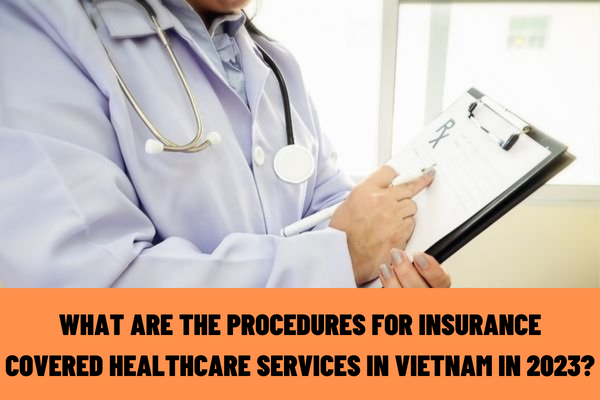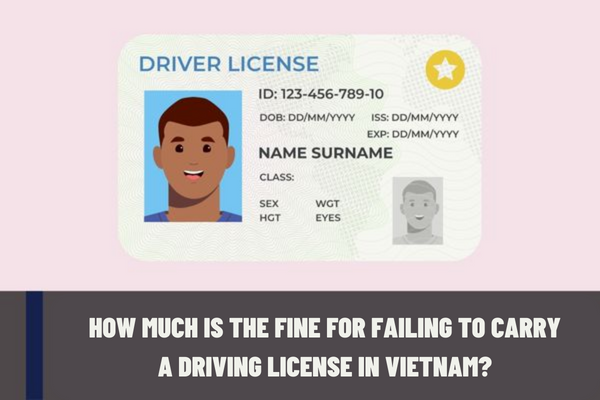What are the procedures for insurance covered healthcare services in Vietnam in 2023? What information is written on the health insurance cards in Vietnam?
What information is written on the health insurance cards in Vietnam?
Pursuant to the provisions of Article 12 of Decree 146/2018/ND-CP stipulating the information on health insurance cards in Vietnam as follows:
- Personal information of a policyholder, including full name, gender, date of birth, permanent residence or workplace address.
- Health insurance coverage rate stipulated in Article 14 hereof.
- Start date of a health insurance card.
- Name of the primary healthcare establishment.
- The consecutive 5-year or longer period of health insurance participation of policyholders making co-payment of healthcare costs. The consecutive period of health insurance participation refers to the date subsequent to the previous date of issue inscribed on a health insurance card; in case of an interval, it must be less than 03 months.
- Photo of the policyholder (not applicable to children under 6 years of age) in case where he/she does not have any photo personal identification document issued by competent bodies or authorities, or any certificate issued by commune-level police authorities or other documents endorsed by educational institutions or vocational education establishments in charge of management of pupils or students, or other legitimate personal identity documents.

What are the procedures for insurance covered healthcare services in Vietnam in 2023? What information is written on the health insurance cards in Vietnam? (Image from the Internet)
What are the procedures for insurance covered healthcare services in Vietnam in 2023?
Pursuant to the provisions of Article 15 of Decree 146/2018/ND-CP stipulating the procedures for insurance covered healthcare services in Vietnam in 2023 as follows:
(1) When visiting healthcare establishments for medical examination or treatment services, health insurance policyholders:
- Must present photo health insurance cards;
In case of absence of the photo, they shall be required to present one of their photo identity documents issued by competent bodies or authorities, or certificates endorsed by commune-level police authorities or others endorsed by educational institutions in charge of management of pupils or students;
- Other legitimate personal identification documents.
(2) When children under 6 years of age go to healthcare establishments to receive medical examination or treatment services:
- Only health insurance cards shall be needed.
If a child is not awarded health insurance cards, a copy of the written evidence of birth or a copy of the birth certificate must be shown;
- In case where such child needs medical treatment after birth but he/she is not awarded the written evidence of birth, the head of the healthcare establishment, parents or guardian of that child shall be required to sign in the medical record as a basis for payment of health insurance benefits as prescribed in clause 1 of Article 27 of Decree 146/2018/ND-CP and shall bear responsibility for their endorsement.
(3) When visiting healthcare establishments to receive medical examination or treatment services, a health insurance policyholder who is expecting a new health insurance card which is reissued or replaces the preexisting one:
- Must present the note of appointment for reissuance and replacement of health insurance card issued by the social insurance agency;
- Or any entity or individual authorized by the social insurance agency to receive applications for reissuance and replacement of health insurance cards by using the Form No. 4 of the Appendix to Decree 146/2018/ND-CP, and any document evidencing personal identity of that policyholder.
(4) When a health insurance policyholder who has donated his/her organ visits healthcare establishments to receive medical examination or treatment services:
- He/she must present documents referred to (1) or (3).
In case where the medical treatment is needed immediately after the organ donation, the head of the healthcare establishment performing organ procurement and the patient or the patient's relative must bear their signature on the medical record as a basis for payment of health insurance benefits in accordance with clause 2 of Article 27 hereof, and shall be responsible for their endorsement.
(5) In case of a referral to another healthcare establishment at the different level, a policyholder shall:
- Be required to present his/her referral dossier formulated by the referring healthcare establishment and the referral form by using the Form No. 6 of the Appendix to Decree 146/2018/ND-CP.
In case where the referral form is valid until the end of December 31 while the medical treatment has not yet been completed, use of that referral form till the end of that medical treatment shall be allowed.
In case of a follow-up examination, a health insurance policyholder must show the note of follow-up appointment of the healthcare establishment which is prepared by using the Form No. 5 of the Appendix to Decree 146/2018/ND-CP.
(6) In case the emergency treatment service is needed, a health insurance policy may choose to be hospitalized at any healthcare establishment and shall:
- Be required to present documents referred to (1), (2) or (3) before discharge from that healthcare establishment.
- After the emergency treatment stage, if the insured patient is allowed by the healthcare establishment to implement procedures for referral to another ward or department of that healthcare establishment in order for them to receive further health monitoring and treatment, or to be referred to another healthcare establishment, these referrals shall be defined as appropriate-level referrals.
The healthcare establishment that does not enter into the health insurance-covered healthcare service contract shall be responsible for providing patients allowed for hospital discharge with valid documents and evidences relating to medical costs which they use for directly claiming payments of their health insurance benefits at social insurance agencies under the provisions of Article 28, 29 and 30 of Decree 146/2018/ND-CP.
(7) If a health insurance policyholder takes up a temporary residence while going on a business trip, working on the move or taking a full-time training program, he/she shall be entitled to receive primary health care at an appropriate-level healthcare establishment or the healthcare establishment at the level equivalent to the healthcare establishment providing primary care which is inscribed on his/her health insurance card, and shall:
Be required to present documents stipulated in (1), (2) or (3) and one of the following documents (either in the form of an authentic copy or a duplicate):
- Business travel form;
- Decision to send personnel to participate in a training course;
- Student identity card;
- Temporary residence evidencing document;
- School transfer approval form.
Note: Healthcare establishments and social insurance agencies shall not be allowed to adopt supplemental procedures for health insurance-covered services in addition to those above procedures.
In case where healthcare establishments or social insurance agencies need copies of the health insurance card and other documents relating to medical examination and treatment of patients to serve administrative tasks, they shall be required to make copies at their expense and shall not be allowed to request patients to make copies or pay photocopy costs.
Who are the health insurance policyholders whose contributions are paid by social insurance agencies in Vietnam?
Pursuant to the provisions of Article 2 of Decree 146/2018/ND-CP stipulating the health insurance policyholders whose contributions are paid by social insurance agencies in Vietnam as follows:
- Persons eligible to be entitled to retirement pensions and incapacity benefits
- Persons currently entitled to monthly social insurance benefits in connection with occupational accidents or diseases; rubber plantation workers currently entitled to monthly benefits in accordance with the Government’s regulations.
- Employees on sick leaves in connection with diseases defined in the List of diseases of which long-term treatments are required, issued by the Ministry of Health.
- Public officers of communes, wards or townlets who leave work and are currently entitled to monthly social insurance benefits.
- Employees on parental leaves who are entitled to childbirth and adoption benefits.
- Persons currently entitled to unemployment benefits.
LawNet
